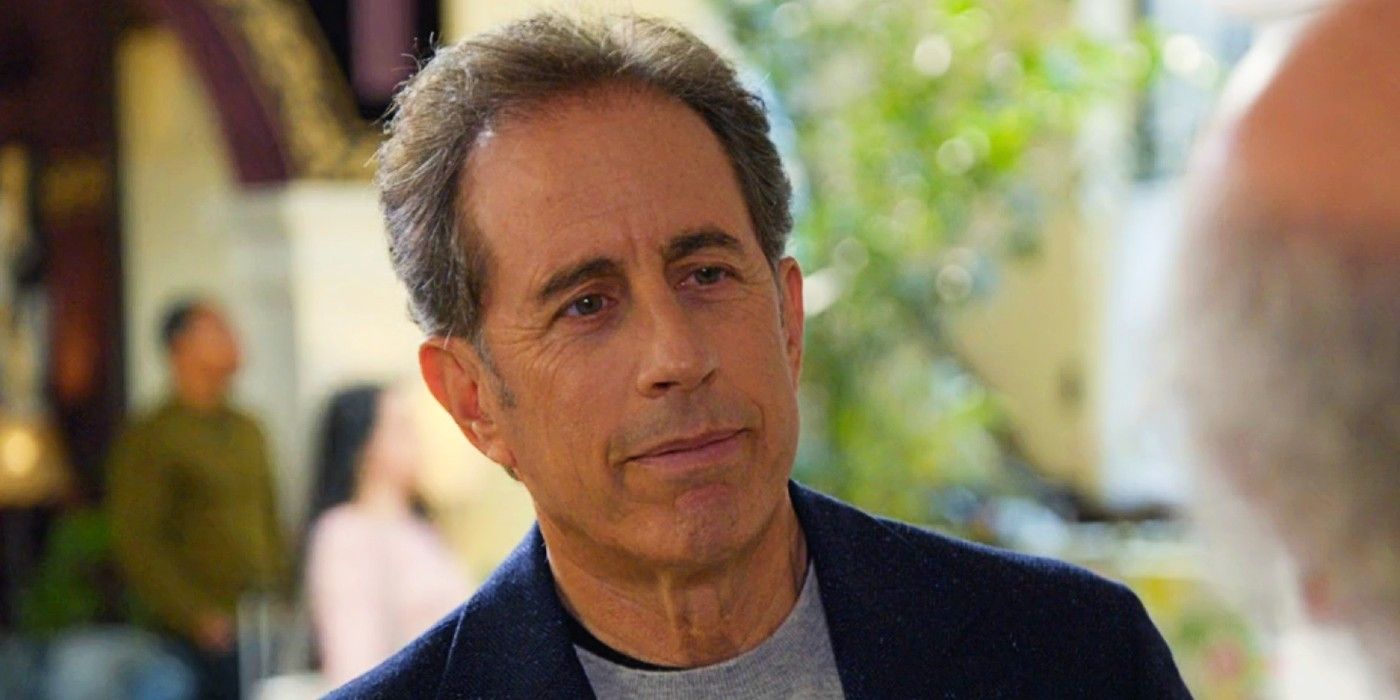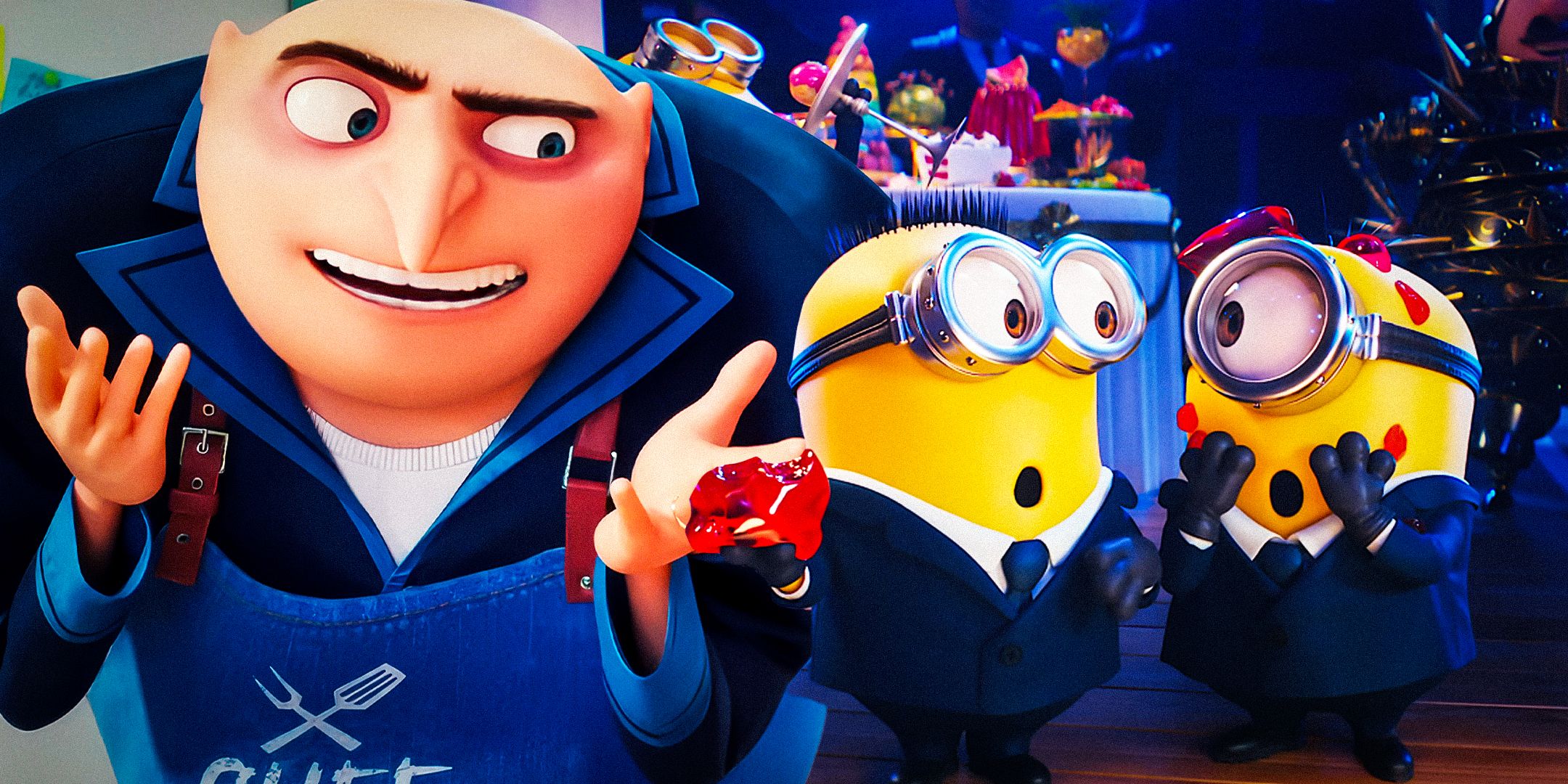While Jerry Seinfeld’s comments in The New Yorker were contentious, Curb Your Enthusiasm proves they were also verifiably incorrect. Jerry Seinfeld co-created the seminal sitcom Seinfeld with Larry David in 1989. Often listed as one of the greatest and most influential sitcoms in history, Seinfeld was notable for its lack of incident. Famously described as a “show about nothing,” the series follows a fictionalized version of Seinfeld himself as he and his amoral friends George, Elaine, and Kramer get into various misadventures. Seinfeld’s cast of characters were unusually cynical as far as network sitcoms went, but their antics were primarily PG.
While David’s later hit Curb Your Enthusiasm mirrored Seinfeld in numerous ways, the former was much more controversial. Whereas Seinfeld was largely family-friendly (aside from some adult humor), Curb Your Enthusiasm featured a breathtaking amount of obscene language and much edgier content. Where Seinfeld largely avoided potentially divisive topics like politics, Curb Your Enthusiasm reveled in dwelling on subjects that were guaranteed to make viewers uncomfortable. As such, it is ironic that 26 years after Seinfeld’s controversial finale, it is Seinfeld who is railing against political correctness ruining comedy.
Jerry Seinfeld’s Controversial Recent Comments About Comedy TV Shows Explained
The Comedy Veteran Claimed The “Extreme Left” Killed Network TV Comedy

In an interview with The New Yorker, Seinfeld claimed that comedy was apolitical and unaffected by social and cultural trends, before stating that progressive political and cultural trends were destroying comedy. Specifically, the comedian blamed the “extreme left” for comedy’s perceived decline. According to Seinfeld, there was once a time when people expected to be able to watch “funny stuff” like M.A.S.H or All in the Family after coming home, but “P.C. crap” and the “extreme left” has since ruined that.
Seinfeld’s comments unsurprisingly made an impact online, partially because the current state of comedy doesn’t resemble the picture he paints. As was the case throughout Seinfeld’s nine-season run, network sitcoms remain some of the most popular television shows. Young Sheldon seasons 6 and 7 commanded an average audience of around 7 million, while seasons 2 and 3 of Ghosts earned similarly high ratings. Not only that, but the sitcoms that Seinfeld used as examples of pure entertainment were highly politically charged and potentially divisive. All In The Family famously focused on taboo topics that were rarely referenced on television, while MASH was literally about the Korean War.
Curb Your Enthusiasm Disproves Seinfeld’s Comments (& He’s Wrong About Why The Show Lasted)
Another Seinfeld Veteran’s TV Show Was Incredibly Transgressive
Perhaps the biggest evidence against Seinfeld’s claims comes from his own Seinfeld co-creator’s successful follow-up series Curb Your Enthusiasm. A cringe comedy that focuses on a fictionalized version of David, Curb Your Enthusiasm is a huge critical hit that began in 2000 and ended a successful 12-season run in 2024. As early as season 1, episode 8, “Beloved Aunt,” Curb Your Enthusiasm’s best episodes were constantly pushing the boundaries of what could be said on television. David’s sitcom is one of the most profane shows in TV history, and this is instrumental to its continued critical success.
Seinfeld attempted to excuse the success of David’s show by noting that he was an industry veteran by the time the series was greenlit, but this ignores the fact that Curb Your Enthusiasm was never a major ratings success and plenty of successful creators have had their shows canceled. Futurama was canceled despite the astronomical success of Matt Groening’s earlier series The Simpsons, while Chuck Lorre’s status as the creator of The Big Bang Theory and Two and A Half Men couldn’t save his one-season Netflix sitcom Disjointed. Curb Your Enthusiasm succeeded because its offensive, edgy jokes were clever, original, and funny.
Lots Of Other TV Shows Disprove Jerry Seinfeld’s Comedy Comments
There Are Countless TV Hits Still Pushing Boundaries
In the same interview, Seinfeld elaborated on his claims by implying that an episode of Seinfeld where Kramer mocked homelessness could never be made in the current social climate. Actor Rob McElhenny took to Twitter to refute this, which makes sense as It’s Always Sunny in Philadelphia’s season 17 renewal pokes another hole in Seinfeld’s argument. Not only is this blackly comedic sitcom far more offensive than most Seinfeld episodes, but the show has also already run for almost twice as long as the earlier sitcom with no end in sight. This is only one of many boundary-pushing comedy shows that disprove Seinfeld’s claim.
While South Park’s continued success proves that an edgy sitcom from the ‘90s can maintain relevance and popularity, that show was admittedly greenlit during Seinfeld’s run. However, the success of Veep, The Righteous Gemstones, I Think You Should Leave, and You’re The Worst further demonstrate that political correctness has not adversely affected edgy TV comedy. All of these shows are far darker, more transgressive, and more audacious than anything in Seinfeld, which was consistently family-friendly. This underlines the biggest issue with Seinfeld’s claim – namely, the implication that his work was uniquely daring and bold upon release.
Jerry Seinfeld’s Comedy Comments Don’t Make Any Sense
Seinfeld Was Famously Not Particularly Edgy Or Offensive
There’s no denying Seinfeld’s merits and comedic appeal, and Seinfeld’s infamous finale is just one instance of the series playing with network TV conventions in a way that surprised viewers. However, it would be a stretch to claim that Seinfeld was offensive even when it was first released. Rather, Seinfeld’s vast fortune and commercial success were rooted in the fact that his work was relatively inoffensive. Moreover, Seinfeld’s claims that the “extreme left” is holding back comedy are easily disproven by a cursory glance at the genre’s TV ratings and the critical popularity of boundary-pushing comedy shows mentioned above.
Moreover, comedy changes with society, and Seinfeld is well aware of this. His Seinfeld character never spoke like Archie Bunker because the cultural context of the ‘90s was very different from the political environment of the ‘70s, and Seinfeld knew his lucrative show would be canceled if its main character was perceived as an unapologetic bigot. Even the worst things Seinfeld ever did conveniently avoided any thorny political topics, whereas All In The Family openly addressed Archie’s misogyny, homophobia, transphobia, and racial prejudice. Seinfeld is aware that TV shows reflect changing cultural norms since this was instrumental to his success.
There is a deluge of shows that traffic in offensive humor and enjoy critical acclaim because of this, as well as countless successful sitcoms. Seinfeld’s concerns about the “extreme left” rang hollow when his longtime collaborator created a monumentally successful series that mocked serious, sensitive subjects like pedophilia, incest, war, and racism. The continued critical acclaim enjoyed by Curb Your Enthusiasm is evidence that Larry David’s comedy can move with the times, continually surprising and delighting audiences.

Curb Your Enthusiasm
*Availability in US
- stream
- rent
- buy
Not available
Not available
Not available
- Cast
-
Larry David
, Jeff Garlin
, Cheryl Hines
, Susie Essman
, J.B. Smoove - Release Date
-
October 15, 2000
- Seasons
-
12
- Network
-
HBO Max
- Streaming Service(s)
-
Max
- Writers
-
Jeff Schaffer
, Larry David





